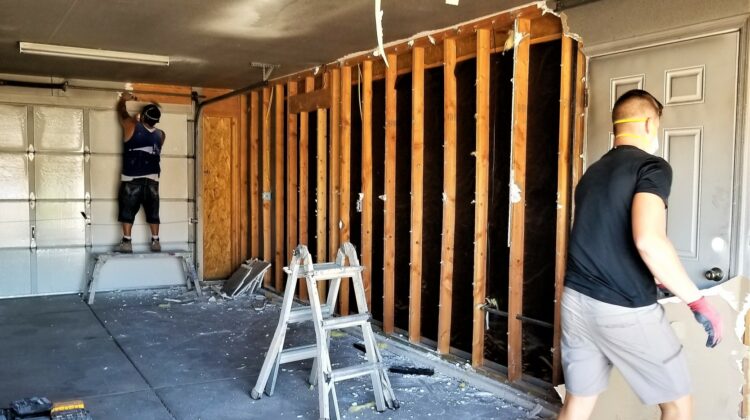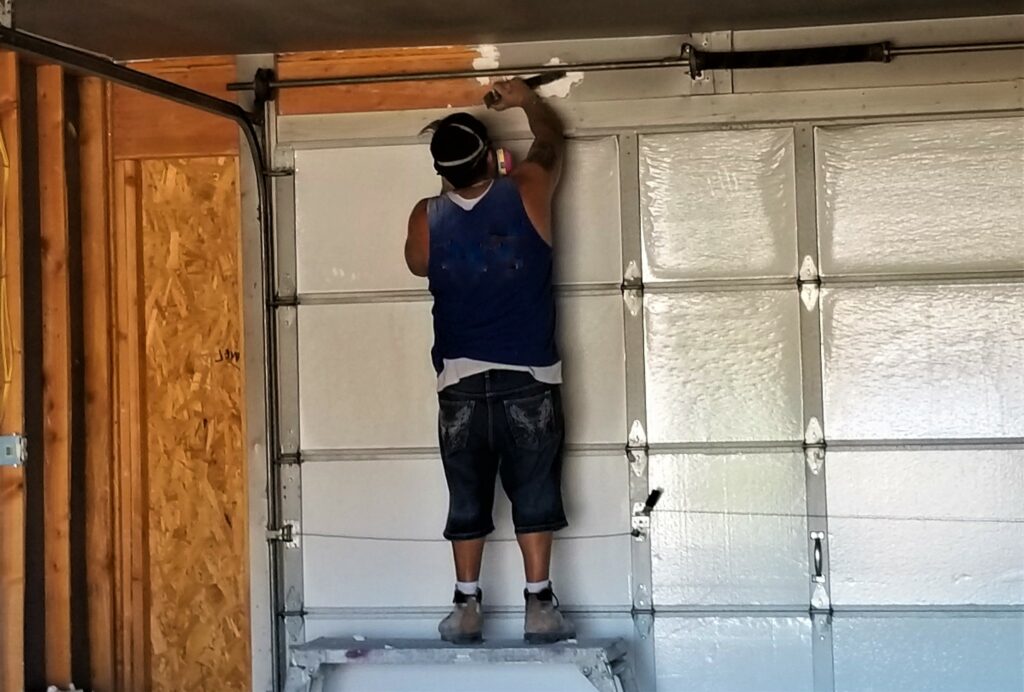
Is garage door insulation worth it? Regardless of where you live, electricity prices fluctuate frequently. To reduce their energy expenses, people look for ways to insulate their homes in areas that experience large temperature swings or other extreme weather events. The garage door is often referred to as an energy vampire.
Having a connected garage means that the garage door opens multiple times a day. Unless the garage door is never used, it may be worthwhile to insulate it. Many people still debate whether to insulate a garage door. In certain situations, insulating a garage door can save a lot of money. Please keep reading to find out whether it’s a wise investment.
Garage Door Insulation Options
Temporary and seasonal garage door insulation can be useful. However, some insulation choices are superior and last longer than others. Garage door insulation comes in a variety of forms.
It uses thin and stiff panels that provide high insulating value with foam board insulation. These are best suited for garage doors that are infrequently opened, as they are more likely to be damaged by the door’s opening.
Adding spray foam insulation to a garage door is a popular way to increase the R-value of the door. But it’s an option for garage doors, and it’s not always the most effective one.
For garage doors, cellulose insulation is a good alternative to spray foam. Cellulose insulation, on the other hand, is more expensive than different types of insulation. Heat is deflected with the use of reflective foil on thin, stiff boards. This sort of insulation is best suited for areas where temperatures frequently exceed 100 degrees Fahrenheit.
Cost-effective insulation: Fiberglass cellulose styrene (FRP). R-value is raised by applying it to the inside of the door.
Insulated garage door panels. Some homeowners replace their garage door with an insulated door in addition to insulating their garage. With a foam core, these doors are much more energy-efficient than typical metal doors. Insulated garage doors might help you decide if it’s worth the money to insulate your garage.
Finding Out if Insulating Your Garage Makes Sense.
As to whether or not insulating your garage will help you save money, there are several variables. To begin, answer the following questions:
You need to make sure that you have an attached garage.
- If so, do you have to deal with frequent and significant temperature swings?
- Do you have pets in your garage?
- Your garage is used for what purpose?
- In the near future, will your house be up for sale?
If You Said “Yes” to Any of the Prior Questions
Garage doors that are insulated might save you money on heating and cooling costs. With at least one wall shared by your home’s attached garage, insufficient insulation will allow hot and cold air into your house. If your garage door shares a wall with a bedroom, for example, the same rules apply.
If, on the other hand, you rarely open your garage door but use the space inside as a workstation or a gym, an insulated garage door can assist keep the temperature in that area consistent. Your garage’s belongings can be damaged by extreme temperatures, including cars, power tools, musical instruments, and gym equipment.
If you plan on selling your home soon, giving greater insulation alternatives will likely boost the value of your home and make it more appealing to potential homebuyers.
Assuming You Answered No
The investment may not be worth it if at least three of the following questions are true. For example, it may not be worth the money to insulate a garage door on a detached garage. Detached garages do not affect your energy costs unless you utilize them to store precious objects sensitive to temperature variations.
How Effective Is Insulation for Your Garage Door?
Insulating a garage door isn’t usually worth the extra cost. Instead, make the garage more energy efficient by insulating the entire structure. All of these surfaces, including the floor, walls, and ceiling, serve as conduits for energy flow. To put it simply, insulate the door, but if you don’t insulate the rest of the house, you may not realize any savings.
A more realistic alternative would be to insulate all of the garage’s walls, especially those that link it to the home. Insulating the ceiling, insulating the boundary between the garage and the residence, and even shielding the floor and windows to reduce air gaps are all part of this process. It’s also worth the effort to insulate the garage door while doing this.
Finally, it would help if you made this option for yourself depending on your lifestyle and needs. Whether or not it’s worth it to insulate your garage door depends on the design of your garage, how you use it, and the climate where you live.

